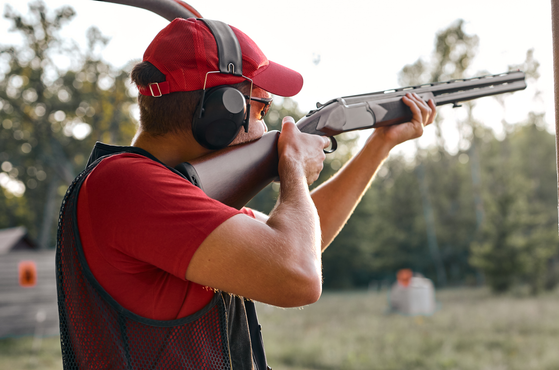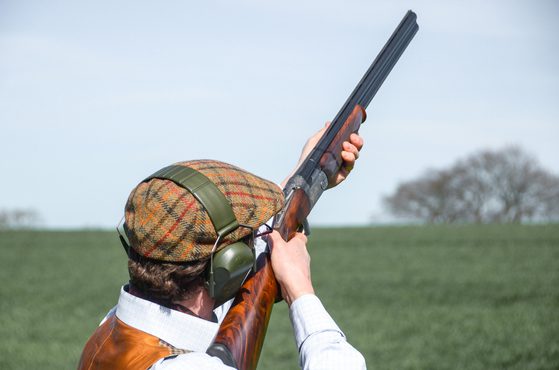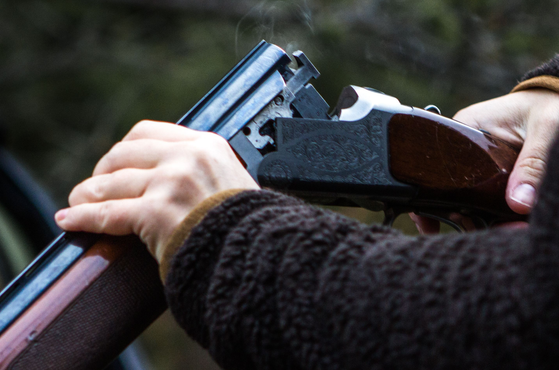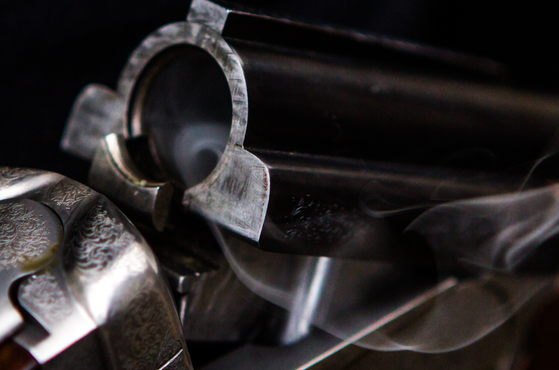Firearms safety, security and compliance explained

Leading firearms lawyer Lachlan Nisbet explains the security and safety conditions’ on your firearms or shotgun certificate and how to ensure compliance.
Read more
We make the difference. Talk to us: 0333 004 4488 | hello@brabners.com
Our nationally-recognised solicitors help you to navigate the complexities of firearms law.
As the UK’s foremost specialist lawyers in the area of shooting and field-sports law, we’ve handled thousands of appeal cases and criminal matters concerning firearms.
Our experience and track record are second-to-none. We're recognised by The Legal 500 as “the go-to firm” for firearms licensing, which adds that “no-one else comes close in terms of numbers of cases or knowledge of the subject matter".
Our firearms team is led by Lachlan Nisbet — a "Leading Individual" in firearms and field-sports law and the England and Wales Legal Adviser to the British Association for Shooting and Conservation (BASC).
He works closely with talented Senior Associate Charlotte McRae, who's a "Recommended Lawyer" and "adept at handling firearms licensing appeals as well as criminal matters".
To discuss how we can support you, call 0333 004 4488, email hello@brabners.com or fill in our contact form.

We act for a wide range of clients, including registered firearms dealers, shooting clubs and other firearms-related businesses, in addition to individual certificate holders.
Excellent links with police forces across England and Wales enable us to negotiate effectively on behalf of our clients. We also provide immediate access to the best expert witnesses covering psychiatry, ballistics, security and antiquity.
We work with organisations that offer legal expenses insurance (both independently and as part of their membership) and we’re experienced in representing individuals who are funded under insurance arrangements.
“Hailed for its ‘unrivalled knowledge of firearms law’... [Brabners is] without any doubt the standout firm of solicitors doing firearms licensing. No one comes close in terms of numbers of cases or knowledge of the subject matter.”
The Legal 500 2026
“Lachlan Nisbet runs the show as far as firearms licensing is concerned. Knowledgeable, affable and practical. Clients trust him. Realistic advice given.”
The Legal 500 2025
“Specialising in firearms licensing issues and recommended as 'most experienced firearms licensing team in the UK' with 'a huge reputation in this field’, Brabners assists a variety of significant clients ranging from shooting clubs and firearms-related businesses to individual certificate holders in a broad array of issues, including firearm and shotgun appeals.”
The Legal 500 2025
“In terms of firearms licensing, no-one else comes close to Brabners in England and Wales — they are the go-to firm and have been for years.”
The Legal 500, 2024
“Charlotte McRae is adept at handling firearms licensing appeals as well as criminal matters.”
The Legal 500 2025
“Lachlan Nisbet is the stand out performer here. He is affable and well respected. Totally unfazed by high-profile clients. Great personal service, great communications throughout the case. Competent, prompt and detailed attention to detail. A reassuring presence.”
Client feedback, The Legal 500 2025

Our firearms law specialists explore what Project Titanium involves and how it may impact firearm and shotgun holders.
“Purely as a result of an accident completely unrelated to me, I discovered first-hand how easy it is to get dragged into a police investigation — your home searched and property seized, very serious criminal allegations levelled and your certificates revoked. On the basis of a recommendation, I instructed Lachlan Nisbet of Brabners. It was clear to me from very early on that I had instructed the best in the field. The criminal allegations were dealt with quickly and Lachlan built and presented a case to the police which saw to the speedy return of my certificates and guns without the need for a costly appeal hearing. I couldn’t recommend Lachlan and his team more highly.”
Firearms client
“Brabners was thorough, fair and transparent in fighting our case. For that, we will always be grateful. You were able to save my reputation, which means a lot. You dealt with us in a professional way and showed patience and understanding, especially when I showed my frustration at times. This was a difficult time for us as a family, a situation I never thought we would be in.”
Firearms client
“I am writing to give my thanks and praise for your hard work in ensuring that the Metropolitan Police’s decision to revoke my shotgun certificate was overturned. I cannot thank you enough for the legal assistance and advice that you gave me. I could not recommend Brabners more highly and would definitely return to use your services.”
Firearms client
“My family and I would wholeheartedly recommend Brabners, their professionalism, diligence and caring attitude they showed in dealing with my case. From the first day I contacted Brabners, they gave me the confidence that I would get the closure we wanted. I would happily recommend their services without doubt.”
Firearms client
“I am more than satisfied with how you have dealt with my case and I will not hesitate to recommend Brabners to any of my family or friends who may be in need of your services.”
Firearms client
“We are highly impressed with the way you have dealt with this. My husband will now join BASC and we will certainly be recommending BASC to all our shooting colleagues.”
Firearms client

Leading firearms lawyer Lachlan Nisbet explains the security and safety conditions’ on your firearms or shotgun certificate and how to ensure compliance.
Read more

We explain how the appeals process works when bringing challenges against firearms licence refusal decisions made by police forces.
Read more

Amid an increase in firearms certificate refusals and revocations, having comprehensive insurance as a licence holder is crucial to protect your rights.
Read more

Our firearms law specialists Lachlan Nisbet and Jon Walters explore Project Titanium and how it may impact firearm and shotgun holders.
Read more

Find answers to our most frequently asked questions about firearms law from our regulatory lawyers.
Read more
Loading form...